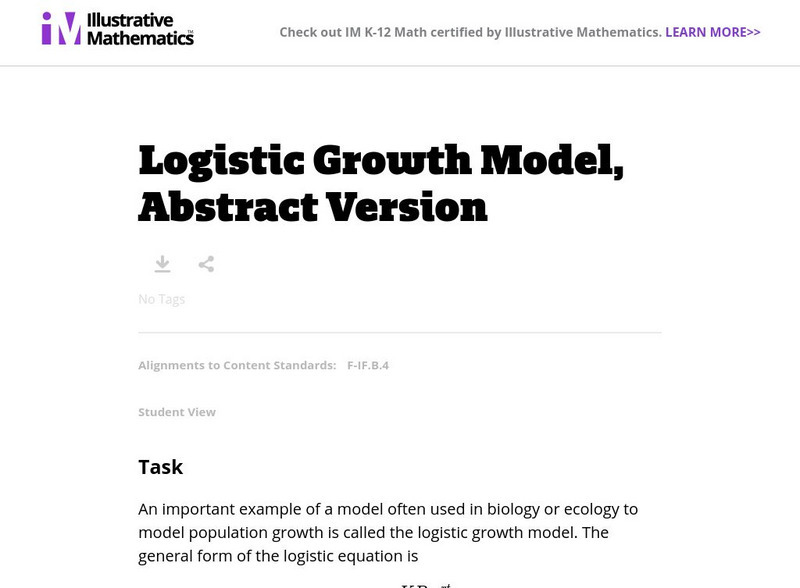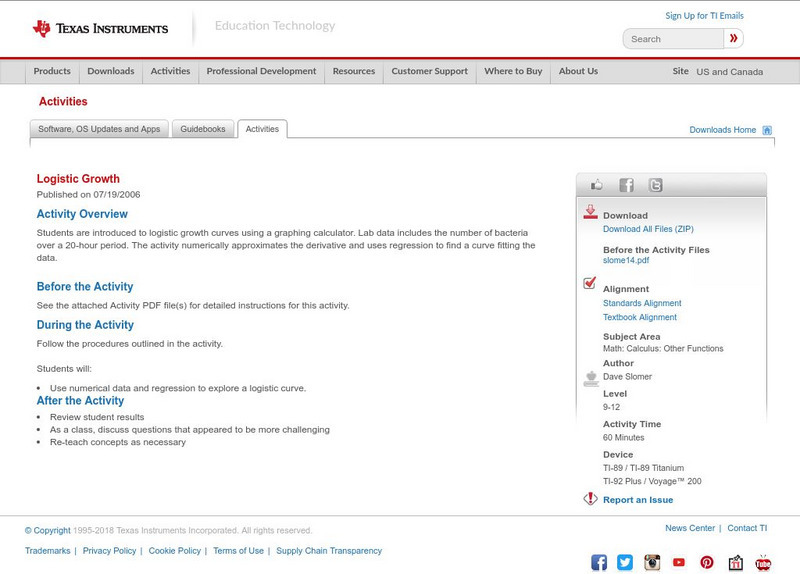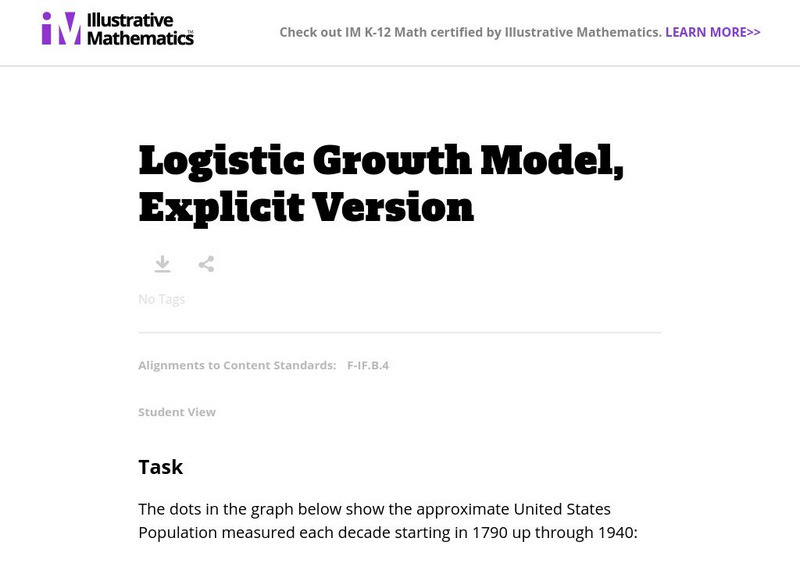Hi, what do you want to do?
Illustrative Mathematics
Logistic Growth Model, Abstract Version
Here learners get to flex some serious algebraic muscles through an investigation of logistic growth. The properties of the constant terms in the logistic growth formula are unraveled in a short but content-dense...
Curated OER
Logistic Growth Model, Explicit Version
Via the concrete setting of estimating the population of the US, your algebra learners are introduced to a logistic growth model. Comparing and contrasting logistic, exponential, linear and quadratic models, to see which fits the data...
Illustrative Mathematics
Identifying Graphs of Functions
Match the graph with its function in an exercise that focuses on variations of the graph of y = e^x. Learners are given four graphs on the same set of axes and four functions, all involving e^x. The task is to match each...
Illustrative Mathematics
Modeling London's Population
Looking at London's population from 1801–1961 in 20 year increments, high school mathematicians determine if the data can be modeled by a given logistic growth equation. They explain their thinking and determine the values of each...
Curated OER
The World Population: Logistic Model
Students explore the various uses of the logistic function. Students use the internet to collect world population data and find a logistic model for their data and use their chosen model to predict future populations.
Texas Instruments
Logistic Growth, Differential Equations, Slope Fields
Investigate differential equations with your class. They use the TI-89 to explore differential equations analytically, graphically, and numerically as the examine the relationships between each of the three approaches.
Curated OER
Graphing Functions
In this graphing functions worksheet, students write functions in logarithmic and exponential forms. They evaluate logarithms and determine the inverse of a function. Students graph functions. This six-page worksheet...
Curated OER
Population Models and Qualitative Analysis, Part 2
In this population model worksheet, students explore models of population growth using the Gompertz growth model and the exponential growth model. They sketch a graph of the slope function and determine possible solutions over time....
Curated OER
Population: Logistically Speaking
In this population worksheet, students read word problems relating to population growth. They write the problem as a differential equation, create models and graphs of the solution. This three-page worksheet contains 10 multi-step...
Illustrative Mathematics
Illustrative Mathematics: F if Logistic Growth Model, Abstract Version
For this task, young scholars are presented with an equation for a logistic growth model and are asked to analyze it. They are then questioned about a graph showing bacterial population growth. Next, they must use information from...
Texas Instruments
Texas Instruments: Logistic Growth
Students are introduced to logistic growth curves using a graphing calculator. Lab data includes the number of bacteria over a 20-hour period. The activity numerically approximates the derivative and uses regression to find a curve...
Illustrative Mathematics
Illustrative Mathematics: F if Logistic Growth Model, Explicit Version
For this task, young scholars are presented with a graph showing the growth of the U.S. population from 1790 to 1940 and are given the equation for a logistic function for it. They are asked to use the equation and the graph to find the...
Illustrative Mathematics
Illustrative Mathematics: F if a Sse Modeling London's Population
In this task, young scholars are shown a table of population data for the city of London and are asked to explore whether a linear, quadratic, or exponential function would be appropriate to model relationships within the data. They are...

















